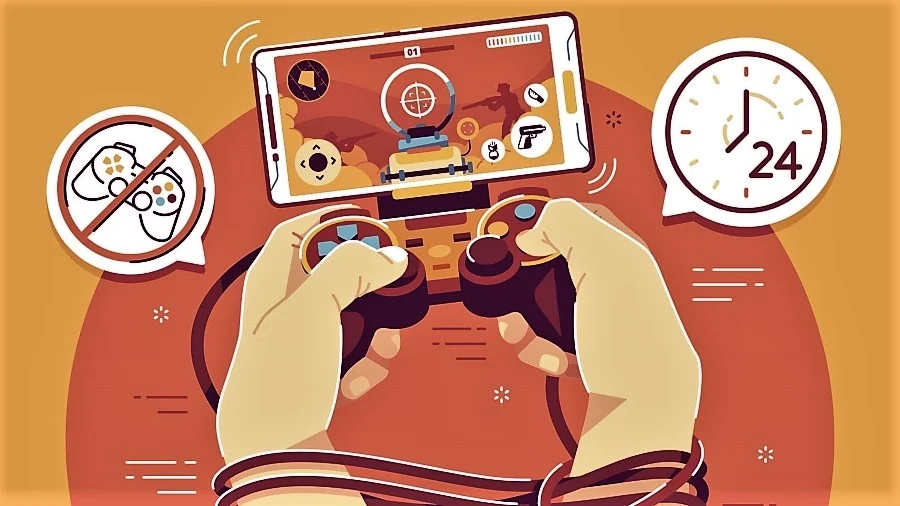
State Govts Fight Gaming-Related Problems with Outright Bans
Online and mobile gaming in India has been a thriving industry with huge growth potential that is expected to bring vast employment opportunities for the nation’s youth. At the same time, the sector is set to continue to attract massive foreign direct investments (FDI) and generate significant revenues for the exchequer. As anything in real life, however, gaming does have its adverse effects, and the state governments’ usual approach of late has been the placing of outright bans on gaming. This line of action though proves to be unproportional and ineffective to achieve the aims set by the state legislators, while being detrimental to this promising industry.Reacting to a series of at least three tragic incidents within a period of one year where kids allegedly commited suicide due to gaming addictions, India’s central state of Madhya Pradesh was the latest to announce plans to adopt regulation over online gaming.
While the nature of the upcoming legislation is still unclear, reports suggest that the planned legislation will declare gaming, gambling and betting online to be criminal offenses and will place a prohibition on cyber platforms and applications containing games that cause addictions. Developing and running online games that harm children will be made punishable by imprisonment and a financial penalty.
Banning is Easy but Ineffective, Unconstitutional and Harmful to Legitimate Business
Several other states, including Kerala, Tamil Nadu, and Karnataka, have recently opted to attempt solving gaming-related issues the easy way by introducing blanket bans over online games. While respective high courts have struck down the prohibitory legislation in the former two states as contradictory to the Constitution, and a similar litigation is still underway in Karnataka, the effect of such bans is rather counter productive. Even if they survive court scrutiny, they only push legitimate gaming businesses out of the market and leave the space empty for shady illegal operators to fill in the gap.“Even if they pass a state law, the gaming and gambling applications will still be available in the App Store and Playstore,” lawyer and cyberspace law expert N. Karthikeyan comments on the recent announcement that Tamil Nadu will do everything to bring back the gaming ban, having previously appealed the verdict of the Madras High Court that had struck it down.
“Some of these are available in open source platforms so it can be shared. So how will the state monitor and take action? How will they know that someone is playing these games until it is reported. So banning online games isn’t a solution but it should be restricted like it is done in other countries where they have limitations to prevent addiction and a limit on how much money can be spent in a day,” Karthikeyan continues.
Rational Regulation Can Do a Much Better Job
States that impose prohibitions on online gaming motivate their decision with the need to address extreme cases including alleged suicides caused by gaming addictions and heavy losses of money, but global best practice has shown that rational regulation and licensing can achieve much more in gaming problem prevention, as shown by a recent research report on the subject by Esse N Videri.Pure Win and many other Indian online casino gaming sites operate under the strict gamer protection requirements of respectable international authorities. The same way, a number of homegrown skill gaming platforms strive to be compliant with the All India Gaming Federation (AIGF) self-regulation charter, which was recently strengthened by a 7-step audit mechanism designed in cooperation with global management consultancy company Arthur D. Little.
The introduction of a national-wide regulatory framework in India can greatly reduce the number of shady, harmful and scamy platforms working in the country substituting their presence with responsible operators. As per numbers quoted by the Esse N Videri paper, 85 percent of gambling sites in Europe in 2011 didn’t have a license. By 2019, that share was brought down to 26.5 percent with the help of better national regulation systems and advances in technology.
Contemporary regulatory practices are focused on gamer protection and require operators to have strong responsible gaming and casino customer support systems in place. Access to professional help, self-exclusion mechanisms, limits on wagered amounts or time spent, and no gambling on credit are just some of the player protection tools needed to obtain and keep a gaming license.
Another important function of national regulation over online gaming and gambling is moving money flows away from illegal operators, where they usually finance other criminal activities, to operators that pay taxes and license fees. These revenues for the exchequer can be used to fund programs that help risk youth and problem gamblers, while law enforcement authorities and police can redirect efforts and funding to fight other more serious crimes.
Denmark (2017) and Sweden (2019) are some of the most recent examples of successful regulation over the online gaming sector. In Sweden, gambling was a state monopoly, but the influx of foreign online operators led to the decision that instead of trying to ban them, it would be better to make them be more responsible. Thus, the Scandinavian country gained new sources of revenues, while lowering the social costs of an already existing and unstoppable phenomenon.













 IndianWeb2.com is an independent digital media platform for business, entrepreneurship, science, technology, startups, gadgets and climate change news & reviews.
IndianWeb2.com is an independent digital media platform for business, entrepreneurship, science, technology, startups, gadgets and climate change news & reviews.



